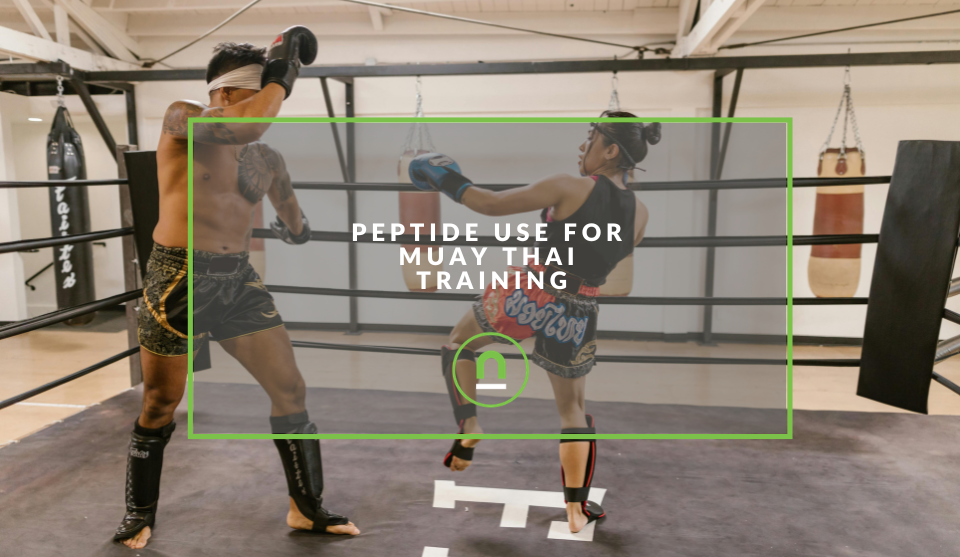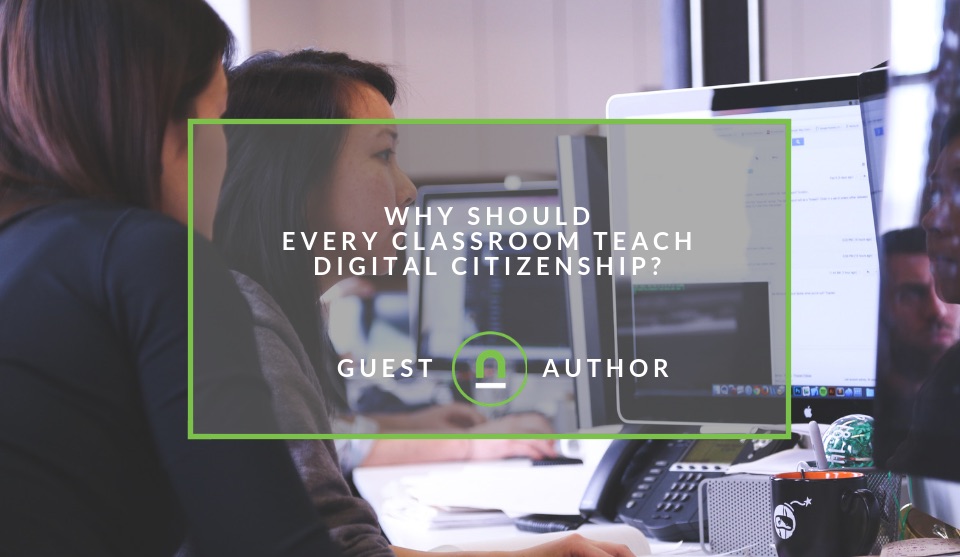Recent posts

Athletes
Peptide Use for Muay Thai Training
23 February 2026

Money Talks
A Guide To Mobile Trading Apps for South Africans
19 February 2026

Press Releases
Rehab Your Knee: A Free, Evidence-Based Guide to Smarter Recovery
12 February 2026

Money Talks
XRP vs. Stablecoins: Which Is Better for Cross-Border Payments in 2026?
28 January 2026
Popular posts
Extravaganza
Trending Music Hashtags To Get Your Posts Noticed
24 August 2018
Geek Chic
How To Fix iPhone/iPad Only Charging In Certain Positions
05 July 2020
Extravaganza
Trending Wedding Hashtags To Get Your Posts Noticed
18 September 2018
Money Talks
How To Find Coupons & Vouchers Online In South Africa
28 March 2019
Why Should Every Classroom Teach Digital Citizenship?
14 August 2019 | 0 comments | Posted by Aiden Morgan in Academia
Nobody would deny that technology is an integral part of our life. Electronic devices and digitalized content are everywhere. The Internet is used for learning, fun, and business.
There is no area in which innovations have not penetrated or are not going to penetrate.
Some people quite reasonably claim that the fruits of progress are not always used for a useful purpose.
Plagiarism, cyberbullying, and abuse of personal information are serious problems making the web not as harmless as we all would like it to be.
Reckless behaviour on the Internet is especially characteristic to teens. They may be impolite, mock their peers, post offensive comments or, on the contrary, turn into victims by giving their money to scammers or using personal data imprudently.
There are countless examples of how young people bring harm to themselves and surrounding people on the Internet and overlook fantastic opportunities for growth and self-development which the digital space provides.
Advocating responsible internet usage
But who is to blame? It would be unfair to impose liability only on children. After all, they are still not adults, need guidance and protection.
Maybe the problem is in cruel websites allowing bad things happen on their pages? But one of the main advantages of the Internet is freedom for each user and resource.
Maybe it is worth blaming parents pampering their kids by buying smartphones and tablets?
But it is crucial for modern students to be tech-savvy and start using gadgets as early as possible.
Of course, it would be wrong to say that some single party is guilty. Students’ improper behaviour on the web is a big challenge having many reasons.
Therefore, it should be addressed comprehensively. In particular, schools can contribute to instilling the habits of responsible and mindful online behaviour in young people.
In this article, experts from Pro-Papers.com have outlined the key reasons why digital citizenship should be taught in each classroom.
1. The growing gap
The more innovations appear, the more significant is the difference between the digital space and the academic world.
Even if schools continue using outdated approaches and paying no attention to students’ online behaviour, young people will try new things and sometimes face negative consequences.
Educators should realize that progress is already here, and it will not go anywhere. That is why schools should direct the digital activities of their students, prepare them for living in both real and virtual worlds.
Schools should educate students about probable threats, and detail the difference between what teenagers do with their digital devices and useful opportunities available online.
2. The importance of digital personalities
Young people are accustomed to the fact that there is a clear line between the Internet and a healthy life. This gives them the freedom to play two different roles.
For example, kids who seem to be diligent and intelligent may post inappropriate comments and be rude with online interlocutors.
At the same time, children who seem to have mediocre talents and behave rather modestly in a class may show creativity on the web, for example, post beautiful poems and paintings.
Taking into account the double life of some students, professors should pay increased attention to their profiles in social networks. This can give them better insights into learners thinking and assist in striving to find out more about young people’s personalities and better ways to engage.
This helps to compile individualized curricula and build strong interpersonal relationships with each learner.
Also, a personal page of a student may be visited by an admissions officer or an employer. By and large, the Internet is a platform where people make friends, seek love, and negotiate on profitable contracts with business partners. The most critical meetings in life may happen here.
That is why each young person needs to create an image of a good digital citizen, show one’s best skills and personal qualities to other web users.
3. Digital citizenship is a part of real life
Somebody may oppose the Internet to real life. But in fact, these two things complement each other. Teenagers live with smartphones in hands and spend much time at a computer.
Educational apps should fit into their lifestyle and reflect it. Those who ignore the significant role of technology deprive themselves of countless academic opportunities. It is worth using digital tools to facilitate collaboration and transmit information more effectively.
Innovations should not entirely replace real-life interaction and on-campus activities but, on the contrary, maximize the potential of traditional education.
4. The harm of multitasking
Sustained attention is needed to study productively. Professors often complain that their students cannot focus on lecture material, play games on the phone or chat on social networks.
The same things happen at home. Even if learners use a computer for research or writing an essay, notifications popping up on a desktop do not allow them to concentrate.
Digital citizenship means using technology where and when appropriate, without harming other life areas.
Educators should teach students mindfulness, discipline, and self-control, explain that online pastime should be strictly divided into work and entertainment.
5. Information literacy and content curation
The Internet provides boundless learning opportunities. All the most interesting and valuable information is on the students’ fingertips.
It is necessary to spend just a couple of minutes to find studies of the best world scientists.
Professors should show young people how to use this informational wealth, search, select, sort out, and process digital content.
Learners may create blogs or websites to share the results of their projects, conduct online polls to find out social opinion on controversial topics and use this data for research.
Sharing helps the creative process and encourages awareness and interest in the latest educational events, learning trips, scholarships, and exchange programs.
Some would say that it is not at all difficult to supplement traditional learning routine with technology. Nevertheless, most schools continue using obsolete approaches.
Also, their initiatives may be fragmented, chaotic, create a mess, and prevent educational institutions from providing the same knowledge level.
Therefore, decisions on adding digital citizenship lessons to a syllabus should be taken up at higher administrative levels.
Tell us your story
Would you like to write for nichemarket just like Aiden has? Find out how to submit a guest post and when you're ready, you can contact us.
Are you looking to promote your business?
South African educational businesses can create your free business listing on nichemarket. The more information you provide about your business, the easier it will be for your customers to find you online.
Registering with nichemarket is easy; all you will need to do is head over to our sign up form and follow the instructions. If you require a more detailed guide on how to create your profile or your listing, then we highly recommend you check out the following articles.
Recommended reading
If you enjoyed this post and have time to spare why not check out these related posts and dive deeper down the rabbit hole that is education.
- 10 Sites That Teach Coding For Free Online
- Trending Hashtags For Teachers & Lecturers
- What Is The International Day of Education?
- How To Get An MBA Online In South Africa
Tags: digital , schooling, guest post
You might also like
Sleep Expert Cautioning Against TikTok’s ‘Mouth Taping’ Trend
28 January 2026
Posted by Steph M in Press Releases
Sleep expert warns that the viral mouth taping trend flooding TikTok could pose serious risks for people with undiagnosed sleep apnea and other sleep...
Read moreWhy Vintage Watches Are the Hottest Trend in 2026
27 January 2026
Posted by Phoebe B in Press Releases
Jewellery expert reveals why vintage watches are the hottest trend in 2026 and how to care for them while you build your watch collection
Read more{{comment.sUserName}}
{{comment.iDayLastEdit}} day ago
{{comment.iDayLastEdit}} days ago
 {{blogcategory.sCategoryName}}
{{blogcategory.sCategoryName}}


